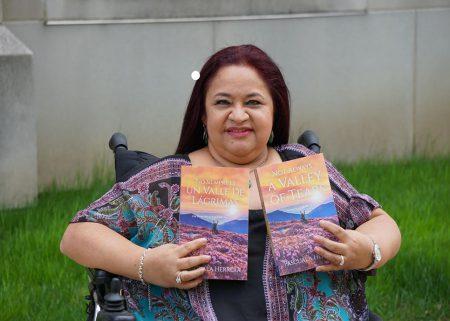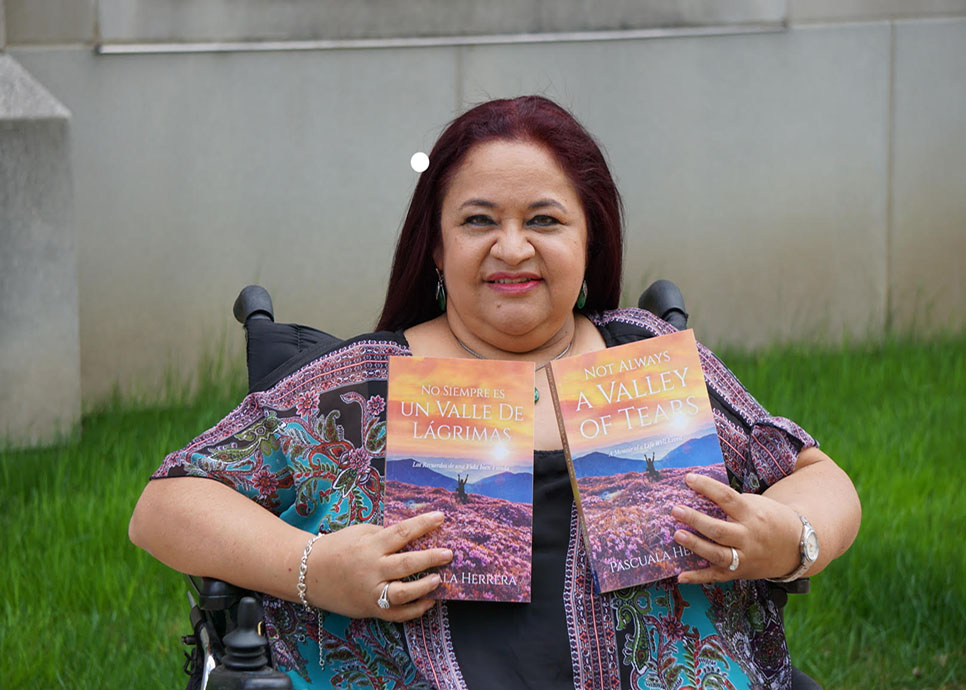
“Not Always a Valley of Tears.”
Photo courtesy of Pascuala Herrera
AUSTIN FOLKERTSMA
campus editor
austin.folkertsma@my.tccd.edu
Student accessibility resources and the intercultural network are hosting a virtual event with an in-person viewing option called “Not A Valley Of Tears.”
Because of the weather, the event has been delayed with no new date given. Once rescheduled, there will be viewing locations districtwide. The room numbers can be found on the event calendar.
“Not A Valley Of Tears” is a self-published book written by Pascuala Herrera that will be available for free at each of the viewing locations.
There will be viewing locations districtwide. The room numbers can be found on the event calendar.
Herrera is a Mexican immigrant residing in Chicago, Illinois. She was diagnosed with Polio at nine months old, and she will be sharing her story about overcoming adversity.
At six months old, Herrera said she was paralyzed, but eventually, because of physical therapy, she was able to move her upper body by 9 months.
“In Mexico, we had no medical care,” Herrera said. “We were a family of 11 living in a very rural area, and my parents knew they wanted a better life for me.”
Herrera said she wasn’t going to school at 6 years old, and she never had a wheelchair, so she was always crawling around.
She also mentioned she celebrated 50 years since coming to the U.S. in December.
When she was in Mexico, she was never labeled as anything, but as soon as she came to the U.S., she had a label put on her: “disabled.”
“I was just a kid, happy-go-lucky, crawling around,” she said. “I never heard the word ‘disability,’ or it didn’t really point out to me that I was different.”
She said before the Americans with Disabilities Act, her family thought she would be able to go to school like her siblings, but she was denied because of her disability and had to go to a “special” school instead.
“It was 20 miles away, kindergarten through twelve, where everyone in the school had a disability,” she said. “They had physical therapists, they had what they called attendants that dressed like nurses, so in retrospect, I feel that all of that experience led me to have the career that I’ve had for 30 years.”
She met her husband protesting for the ADA.
“The importance of the event is to inspire and motivate others in working toward achieving their goals despite challenges they face,” NE coordinator of student accessibility resources Kimberly Eason said.
Eason said Hererra inspired her because she made the impossible possible.
“Despite having polio and being a female Latina immigrant living in poverty, she found her purpose as an educator specialized in accessibility learning for college students with disabilities,” she said.
Eason wants students to know that having a disability doesn’t define who someone is as a person.
“I hope students come to realize that their path is not predetermined by how other people categorize them.”

